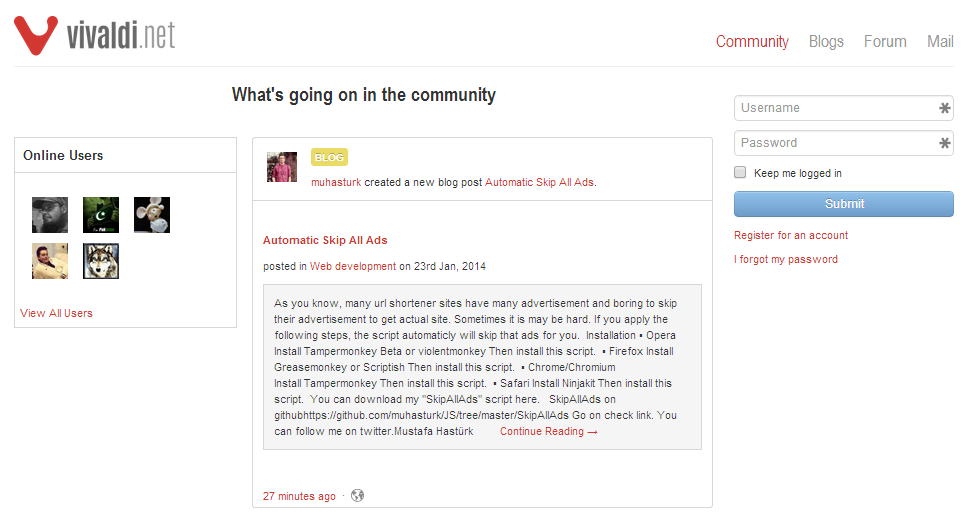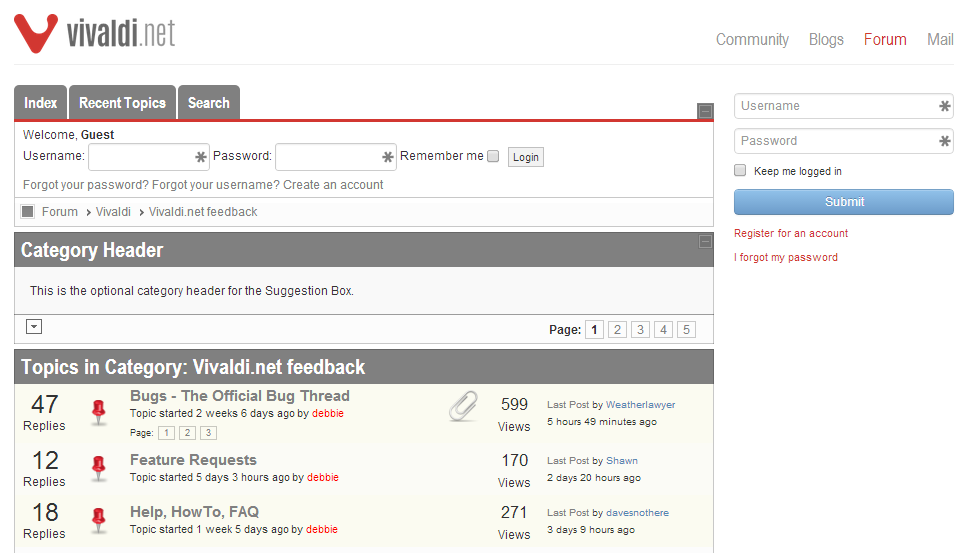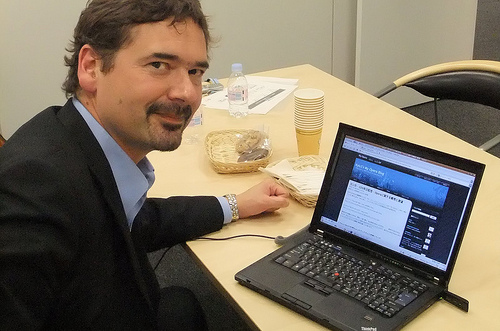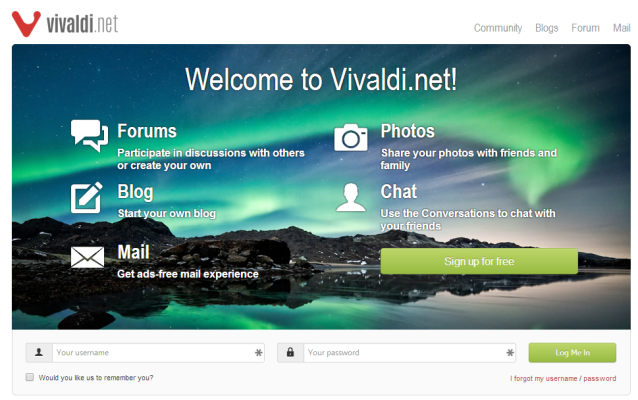After Jon von Tetzchner left Opera in 2011, things went quiet around the company’s former CEO and Opera itself quickly went into a different direction under its new leadership. As part of that change, the company decided to shut down its My Opera community by March 1, 2014.
My Opera launched in 2001 as a support forum and a few years later, it morphed into a very active community site, with built-in blogs, photo sharing and other services that were often also integrated in the browser. While it’s mostly been under the radar of the tech press, the service still has close to 10 million users who will now be looking for a new place to call their online home.
To give the old My Opera a refuge after the service shuts down, von Tetzchner gathered about 20 former Opera employees to develop a replacement at Vivaldi.net. The name already hints at its relationship to Opera. As von Tetzchner told me, most meeting rooms and many other things at Opera were always named after composers, so Vivaldi was a logical (and available) choice.

“When Opera decided to close the community site,” he told me, “that gave us a very good reason to build a new community site.” Right now, the service is mostly geared to those former My Opera users, with forums, the ability to write blog posts and an email service. It doesn’t currently have all of My Opera’s photo-sharing features and layout tools for the built-in blogs, but then, the team only had a few weeks to build the current iteration of the site.
The self-funded service is currently available for free, and as von Tetzchner stressed, he does not want to monetize it through advertising. “We will not be going into the data and using that to provide advertising,” he told me. Instead, he believes the team can find other ways to monetize the service in the long run.
The team plans to listen to its users when it comes to developing new features. Tomita Tatsuki, a former Opera employee who previously led Opera’s efforts in Japan and now works on Vivaldi, told me that this may often mean finding the right balance between privacy and functionality.

While Vivaldi was designed as a replacement for the old My Opera community, though, von Tetzchner stressed that it is open to all. Given its heritage, the team believes, the service will mostly appeal to a more technical audience and currently, the most active forums are indeed about technology and, especially, browsers.
The servers for the service are based in Iceland, which has very strong privacy laws. Another draw for von Tetzchner (who was born in Iceland but now lives just north of Boston) was the fact that the team can host its servers in green data centers that run on renewable energy and barely need air conditioning thanks to Iceland’s climate.

Jon von Tetzchner
As for Opera, von Tetzchner told me that the company is “moving in a very different direction than what I would’ve liked to see.” A lot of the company’s focus has been on areas that didn’t directly involve the browser and instead on advertising services and acquiring companies like Skyfire.
Because of this, he believes, “the browser part has not been getting the same attention as before” and there has been “much less focus on innovation.”
He is also not a fan of Opera’s switch from its own Presto engine to Blink, Google’s open-source browser-rendering engine. “We had worked so hard on building this great kernel, but for the last four years, the focus on Presto was reduced. There was not enough investment and then they just decided to throw it away.” Presto, he said, “was great and flexible and easy to maintain,” but all that investment just “went down the drain.”
Von Tetzchner had no comment when I asked him if Vivaldi would ever consider building a browser.
[Image of Jon von Tetzchner via Flickr]
